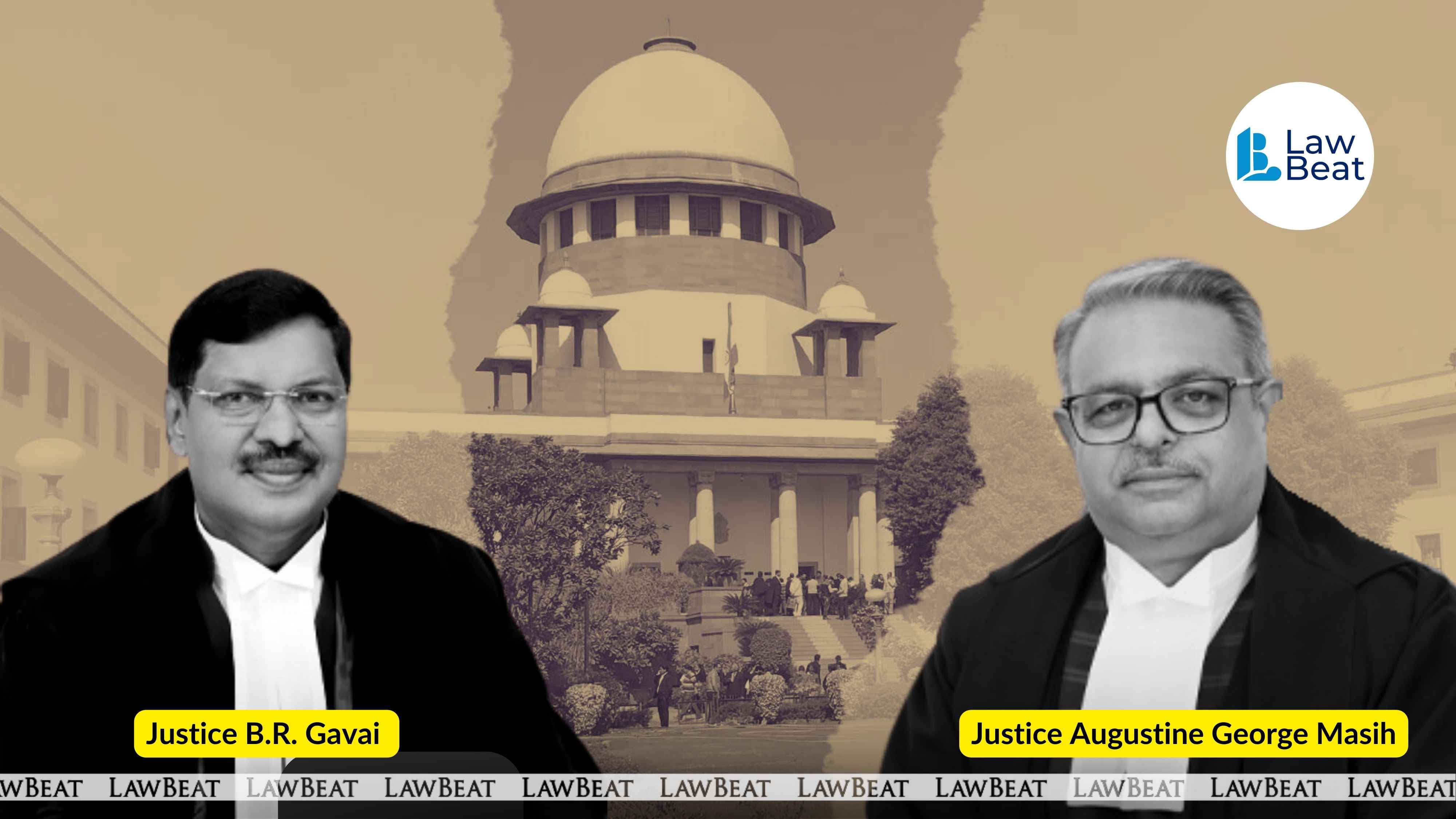'State, High Court Should Be Model Litigants': SC Slams Salary Denial to Judiciary Staff

Directing the Uttar Pradesh government and the high court to pay pending salaries with interest, court criticized the denial of relief despite eight years of service
The Supreme Court has held that the state and high courts must act as model litigants and should not adopt a hyper-technical approach in salary disputes. It directed the Uttar Pradesh government and the high court to pay pending salaries, with interest, to employees of district judiciary who were denied payment due to procedural technicalities.
A bench of Justices B.R. Gavai and Augustine George Masih allowed an appeal filed by Yogesh Kumar against the Allahabad High Court's single and division bench judgments rendered on May 23, 2018, and May 16, 2019, respectively.
The apex court directed the state of Uttar Pradesh and the high court to pay the salary of the appellant and other similarly situated persons for the period during which they actually worked in the district court within three months, along with interest at the rate of 6% per annum from the date on which the salaries ought to have been paid.
"We further find that since the appellant herein and others who were made to run from one court to another, specifically after 2012 i.e. the date on which the order was passed by this court, the appellant would also be entitled to costs quantified at Rs one lakh, to be paid within three months," the bench said.
The appellant, along with six others was found suitable in the selection process. He was appointed to the post of stenographer and assumed charge on April 16, 2002, in Saharanpur. However, it was subsequently found that only three posts had been advertised, and four additional persons, including the appellant, were appointed in excess. They were, therefore, issued show cause notices, and on February 28, 2005, the district judge passed an order terminating the services of the appellant and three others.
The appellant approached the high court's single and division benches, which dismissed his plea.
The Supreme Court also dismissed the special leave petition on September 21, 2012. However, it clarified that this dismissal would not prevent the petitioners from seeking relief through an appropriate civil action, as they claimed to have worked for eight years without a salary.
The appellants subsequently made a representation before the district judge, Saharanpur, for payment of their salaries. However, it was rejected. The high court also refused to entertain the writ petition and appeal.
Before the apex court, their counsel contended that relief was denied to the appellant and others on the ground that the top court had observed that, insofar as the payment of salary was concerned, they were entitled to take recourse to an appropriate civil action. They argued that the high court's approach in non-suiting the appellants on the basis that the writ court was not a civil court was totally erroneous.
The high court’s counsel defended the rejection of the plea, stating that the appellant and others had lost up to the apex court in the first round of litigation. He said that the liberty granted by the court was to take recourse to an appropriate civil action. Since the appellant and others, instead of filing an appropriate action before a civil court, had merely made a representation to the district judge, which was rightly rejected, the high court was justified in dismissing the petition as well as the appeal.
The bench noted that the appellant and others had applied in response to an advertisement issued by the district court, Saharanpur. However, although there were only three regular vacancies at the relevant time since the Fast Track Courts were functioning, the appellant and others were appointed to work there. Subsequently, after the Fast Track Courts ceased to function, the services of the appellant and others appeared to have been terminated.
"No doubt that their termination has been upheld by the Single Judge and the Division Bench of the High Court as well as by this court in the first round. However, this court has specifically clarified that the dismissal of the special leave petition shall not prevent the appellant and others from seeking any such relief in an appropriate civil action," the bench recorded.
The high court non-suited the appellant and others on the ground that an appropriate civil action would mean proceedings only before a civil court. The single judge elaborated on what would amount to a ‘civil action’ by referring to the Advanced Law Lexicon, court noted.
"No doubt that the Single Judge has correctly considered the definition of a ‘civil action’; but, in our view, while exercising the jurisdiction under Article 226 of the Constitution of India, the Court is not expected to be hyper-technical," the bench said.
Citing ABL International Ltd and Another Vs Export Credit Guarantee Corporation of India Ltd and Others (2004), the bench pointed out that it has been held that even in cases where there are disputed questions of fact, if such disputes can be decided on the basis of affidavit evidence and no elaborate evidence is required, the high court would be justified in granting relief under Article 226 of the Constitution.
"In any case, the State as well as the High Courts are expected to be model litigants. The High Court is not expected to take a hyper-technical view, when dealing with the case of payment of salary of the employees of the District Judiciary, who have actually put in eight years of service," the bench said, holding the high court’s judgments as not sustainable in law.
Case Title: Yogesh Kumar Vs The State of Uttar Pradesh And Others
